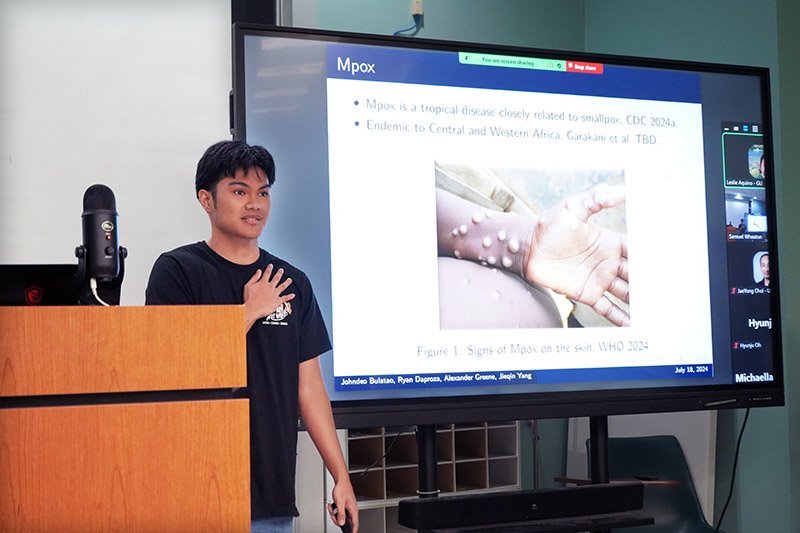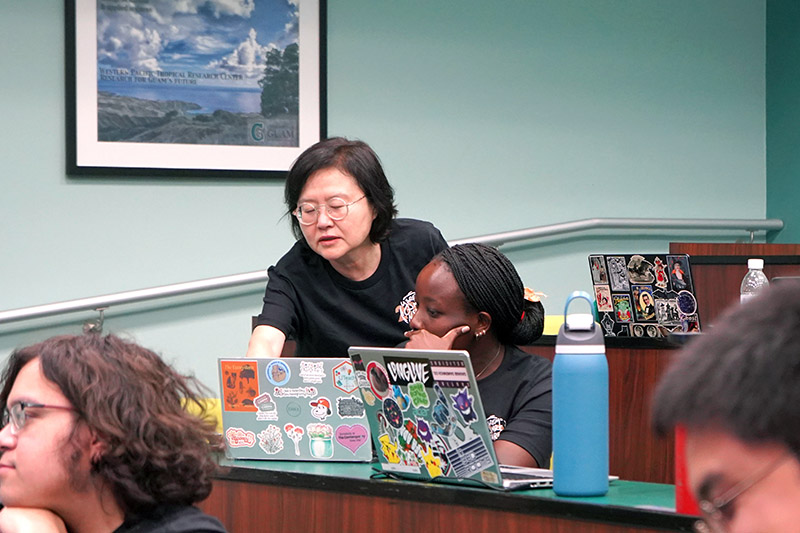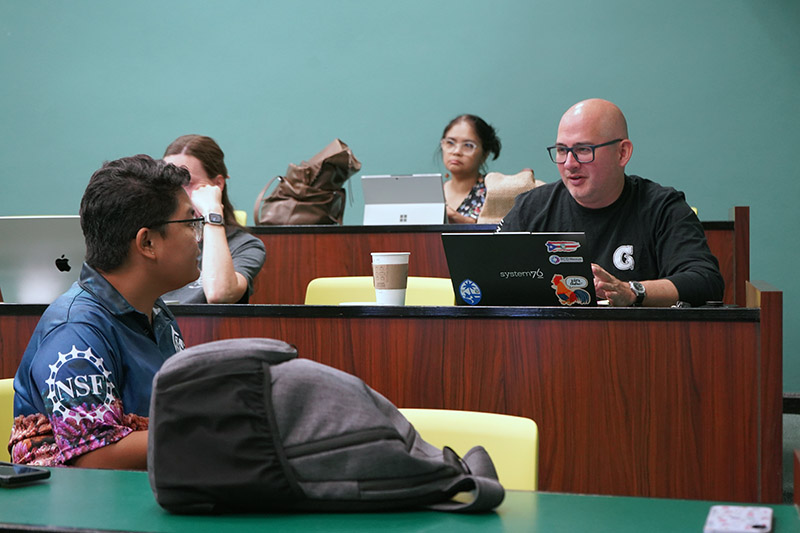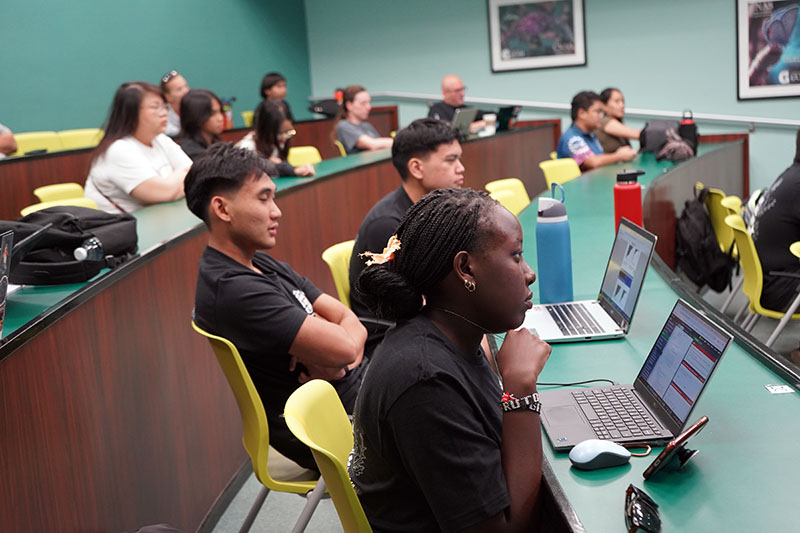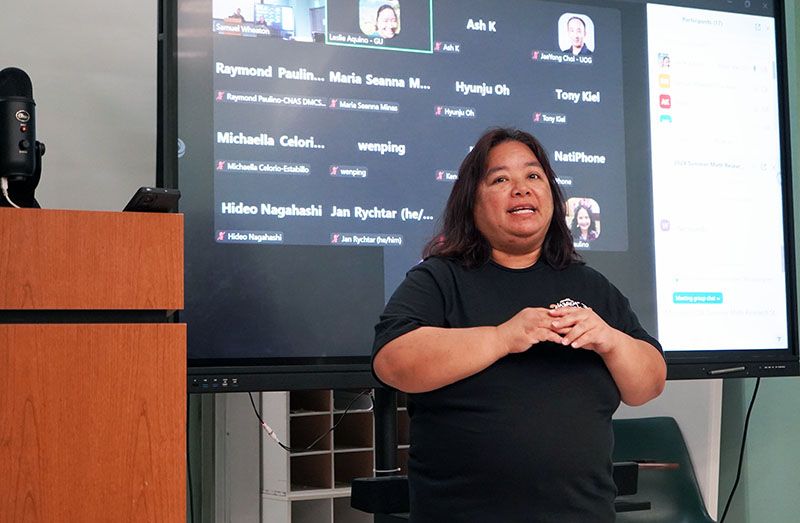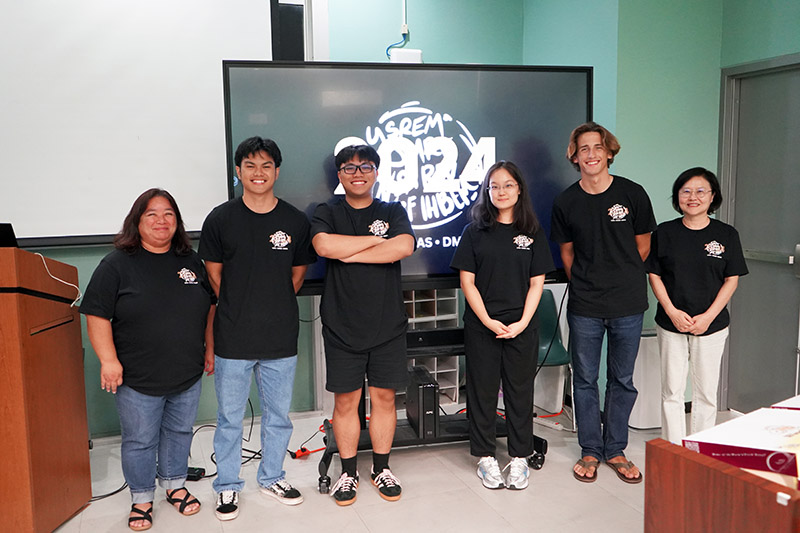Nothing is Mpox-ible: Students delve into real-world problems using math
Nothing is Mpox-ible: Students delve into real-world problems using math
Nothing is Mpox-ible: Students delve into real-world problems using math
9/5/2024
Nothing is “Mpox-ible” — even preventing monkey pox using math — according to a team of students who engaged in an eight-week math research experience at the University of Guam this summer.
From the end of May through July, two high school students, 17 UOG students, and three students from off-island universities were on campus daily exploring how math — specifically graph and game theory — can inform solutions on the spread of diseases among humans and corals and other real-world problems.
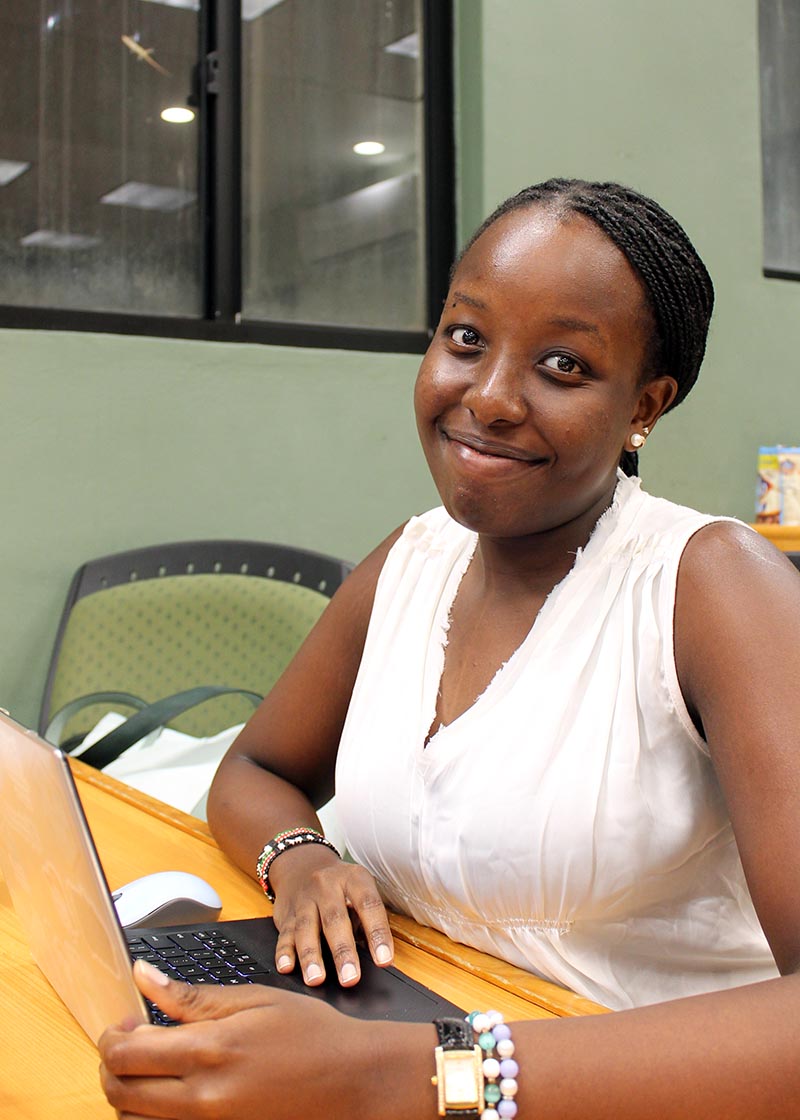
Led by the faculty and research assistants of UOG’s Division of Mathematics & Computer Science, the summer program combined four different programs:
- the National Security Agency-funded Math Research Experience for Undergraduates (REU)
- the Young Scholars Research Experience in Math (YSREM) for high school students, supported by UOG Cooperative Extension & Outreach
- the National Science Foundation-funded Incorporating Human Behavior in Epidemiological Models (IHBEM) REU
- the GECCO Summer Math Research Experience, supported by Guam EPSCoR
Over the course of the eight weeks, the students were challenged to apply mathematics, including Calculus, linear/abstract Algebra, differentials, and group theory, to analyze a complex system and develop an innovative solution. As teams under a faculty mentor, they investigated:
- graph theory and sudoku
- graph theory and gout
- game theory and Mpox
- game theory and trachoma
- bacterial networks of transplanted corals.
Hands-on with math software
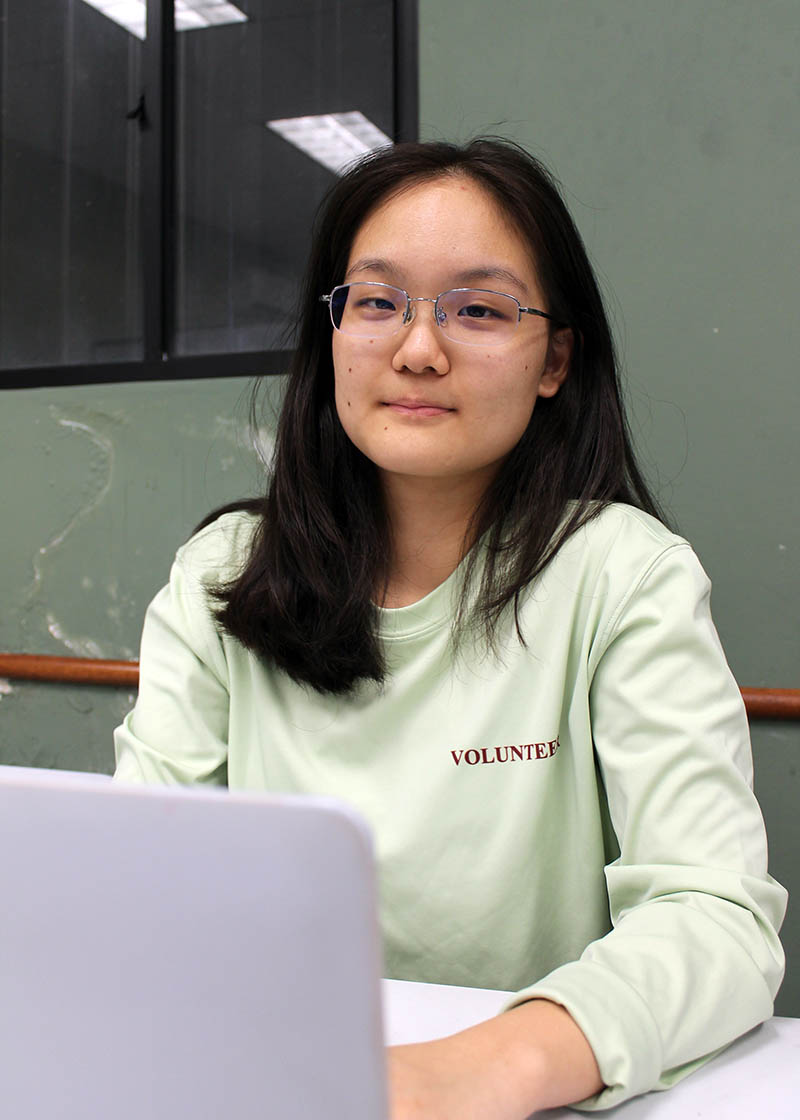
A highlight of the experience for the students was learning to use mathematical software including R Studio, SAGE Math, Overleaf, and MATLAB, which are powerful tools in research and analyzing data, trends, visualizations, and stimulations.
“In terms of software and life lessons, I’ve really advanced my skills in several areas. [...] I’ve learned how to work with MATLAB and LaTeX more comfortably,” said Cindy Ruto, a third-year mathematics undergraduate at the University of Texas at Austin.
She also shared her appreciation for the refresher workshops the research assistants were able to provide for first-time REU participants.
“Becoming more familiar with computer functions and learning how to write [research] papers [proficiently] in the context of mathematical research has been incredibly valuable,” she said.
Jiequin Yang, a junior from Harvest Christian Academy, was one of the high school participants. She said she enjoyed being able to work on real-world problems with others who share her passion for math.
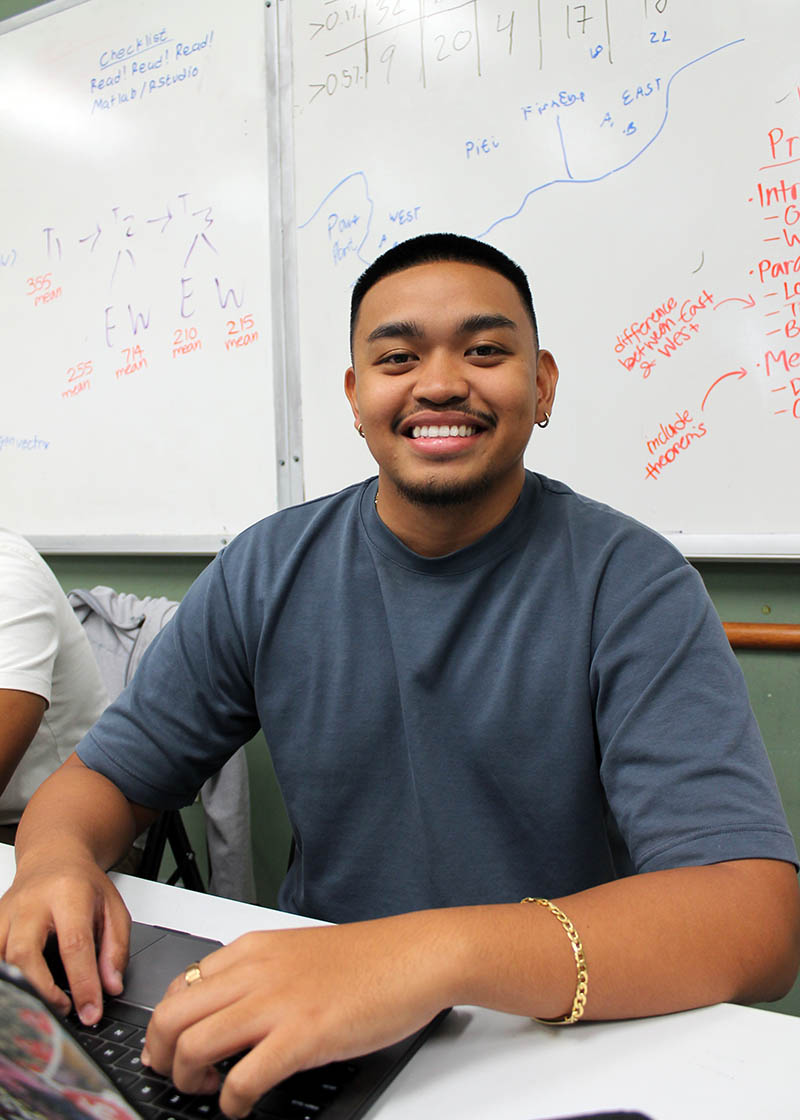 “It is really nice being in this program because at school, not everyone truly appreciates
math. Being [in YSREM] is so enjoyable and refreshing,” she said.
“It is really nice being in this program because at school, not everyone truly appreciates
math. Being [in YSREM] is so enjoyable and refreshing,” she said.
Diverse perspectives, collaborative environment
Stateside undergraduates were invited to participate in UOG’s summer math experience to provide students an opportunity to work toward solutions from a variety of perspectives and backgrounds. This year’s program included students from Willamette College, University of Texas at Austin, and Lewis & Clark College.
Despite the challenging and intricate nature of their assigned research topics, students found support in each other and in the collaborative environment of the program.
Sean Pascua, a spring 2024 mathematics graduate from UOG, admitted the summer program was “stressful, but fun.”
“This program really challenges [you in] all the aspects, like critical thinking [and] communication. It is an effective way to apply all the things that I have been learning at UOG […],” he said.
Participate in a Summer Math REU
Students from 10th grade to university level who are interested in participating in the math research experience next summer can email mathreu@triton.uog.edu. Announcements will also be made via Triton email and on CNAS social media.

